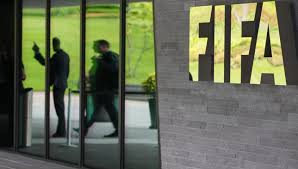By David Owen
April 10 – FIFA, the world governing body currently exposed to investigations by the United States Department of Justice and Switzerland’s Office of the Attorney General, is budgeting for a deficit of close to half a billion dollars this year before a sharp rebound in the World Cup year of 2018.
The projected deficit of $489 million before financial result and taxes is revealed in the body’s newly-published 2016 financial report. This discloses a net loss of $368.8 million after a restated net loss of $52.8 million in 2015.
A huge surplus of $1.1 billion is expected in 2018, however, swelled by largely World Cup-related revenues of almost $4 billion. If achieved, this would allow boss Gianni Infantino to head into FIFA Presidential election year in 2019 claiming the organisation’s financial transformation had been completed, while pointing to a small overall surplus for the 2015-18 cycle in spite of increased development payments and turbulence arguably unprecedented for any sports governing body.
Such a pattern would result in FIFA’s reserves tumbling to just over $600 million at the end of this year, from $1.5 billion at end-2014, before rebounding.
FIFA has adopted a new revenue standard called IFRS 15, which sounds arcane, but which means that almost all the revenue and expenses related to Russia 2018 will be allocated to the 2018 financial year. Since FIFA’s finances are massively dependent on its quadrennial World Cup, this amounts to a very major change.
Overall, the picture that emerges from the new accounts is one of financial stagnation allied to a degree of downside risk linked to global economic conditions and the ongoing US and Swiss investigations.
If current projections outlined in the report prove accurate, FIFA will generate revenue of $5.66 billion in 2015-18, versus $5.4 billion in the previous four-year cycle. This is not exactly explosive growth, especially when set against UEFA’s just-announced €847 million Euro 2016 profit and €4.58 billion annual revenue figure for the 2016 financial year.
FIFA acknowledges, moreover, that while it expects to hit its revenue budget target, “stagnant global trade and subdued investment, combined with investigations surrounding previous FIFA officials, have put pressure on the organisation’s overall revenue generation”.
Notes to the new accounts reveal provisions of $262 million, covering “various legal matters with respect to the core business of FIFA”.
The explanation goes on: “No detailed information can be provided at this point since legal disputes are sensitive matters and the mere fact that a provision for certain matters has been set up might be misinterpreted to prejudice FIFA’s position in such proceedings. In accordance with acknowledged rules, provisions are recognised if and when an obligation has arisen from a past event, it is probable that FIFA will be required to settle the obligation and a reliable estimate can be made of the amount of the obligation.”
Before 2015 figures were represented, the balance of provisions at 31 December 2015 stood at just $11.9 million, covering the future costs of the executive committee pension plan. According to the 2015 report, there were “no other legal or constructive obligations that require the recognition of provisions”.
The new accounts do not hold back in expressing the new leadership’s views on the FIFA World Football Museum, which opened in February 2016, describing it and a Zurich hotel acquired in 2014 for $39.9 million including “improvements” as “ill-considered non-core investments”.
Total personnel expenses are up quite sharply to $125.9 million, even though the 2015 figure was restated from $92.1 million originally reported to $107.2 million. This restatement includes Transfer Matching System and Early Warning System.
The number of employees at December 31 was up by more than 100 at 685, a rise attributed to the museum. The figure for wages and salaries actually fell marginally to $82.5 million, but social benefit costs more than doubled.
An accompanying governance report shows that Infantino received gross compensation of just over $1.5 million in 2016, with secretary general Fatma Samoura getting more than $800,000.
The document also states that Issa Hayatou, recently ousted as head of CAF, received total remuneration of just under $2 million. This covered his stint as FIFA interim President, as well as his role as FIFA Council member and chairman of the finance committee.
Contact the writer of this story at moc.l1745202561labto1745202561ofdlr1745202561owedi1745202561sni@n1745202561ewo.d1745202561ivad1745202561

